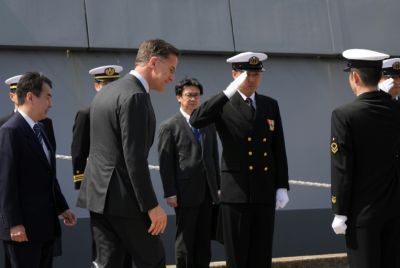Bradley Manning On Trial:Soldier Faces Possible 154-Year Imprisonment for Alleged Leak, Aiding of Al Qaeda
US army private Bradley Manning is facing a possible 154-year imprisonment for his alleged transmittal of classified information to website WikiLeaks, considered the biggest breach of military information in American history.
Trial has commenced for the prosecution of the 25 year old soldier who is likewise accused of aiding the terror group Al Qaeda by leaking secret files to the whistle-blowing website.
On Monday, Manning pleaded guilty to the 10 charges filed against him but did not own up to the most critical accusation - that of conniving with the Al Qaeda group.
The accused is being tried by a military court instead of a jury per his request.
According to US military prosecutors, Manning had leaked around 700,000 confidential military records from Iran and Afghanistan over the period of six months prior his arrest in May 2010. He also allegedly transmitted classified information to diplomatic cables to different parts of the world.
Captain Joe Morrow, a member of the prosecution, said during trial that Manning committed the breach despite clear awareness of the fact that the information could be used by the late Osama Bin Laden's terror group.
"This is a case of what happens when arrogance meets access to sensitive information," Morrow said on Monday.
According to Morrow, Manning had started transmitting information to WikiLeaks barely two weeks after he was deployed to Iraq in 2009.
He clearly knew the "consequences of his actions," the captain said. This was revealed after authorities searched the young soldier's personal computer upon his arrest in 2010.
"The evidence will show ... the accused knowingly gave intelligence to the enemy," Morrow said.
"He knew al-Qaeda used WikiLeaks."
Morrow also claimed that Manning maintained close contact with WikiLeaks founder Julian Assange who helped the accused sort out valuable information sent to the website. At present, Assange is seeking refuge at the embassy of Ecuador in London apparently avoiding extradition to Sweden.
According to the prosecution, the accused had leaked not just classified information but also the email addresses of more than 70,000 servicemen deployed in Iraq, including their names and military ranks.
Eric Baker, Manning's roommate, also testified on Monday saying that the accused spent most of his spare time on the computer.
Earlier, defence lawyer David Coombs vehemently countered the prosecution by painting the accused as a "young, naive and good-intentioned" soldier who just struggled with some personal crisis after arriving in Iraq.
The lawyer said that Manning, who was only 22 years old when deployed in Iraq, became traumatised after personally witnessing a roadside bombing that destroyed a civilian car on the eve of Christmas in 2009.
"Everyone was celebrating on this Christmas Eve, everyone but PFC Manning," the lawyer said.
"He couldn't forget about the lives and the families on this Christmas Eve. At this moment he started struggling."
Coombs further described Manning as a "humanist," whose only desire in leaking the information was to "make this world a better place."
It was apparently in this light that Manning exposed a video where a US combat helicopter was seen firing on Iraqui citizens in 2007.
The young soldier also leaked a secret video of the air strike launched by the US on Granai, an Afghan village. The air assault claimed the lives of at least 100 civilians in 2009.
Manning's trial is expected to end after 12 weeks. According to reports, some of the evidence will not be released publicly due to concerns on national security.





















